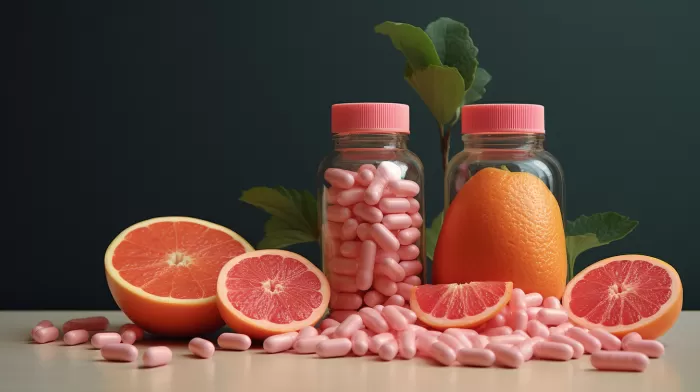Grapefruit and grapefruit juice are typically considered healthy additions to your diet. However, it’s crucial to understand that grapefruit possesses natural substances that can interfere with how your body metabolizes specific prescription drugs. Over the past four years, the list of potential drug interactions with grapefruit has more than doubled, making it essential for healthcare professionals and patients alike to stay current on which medications are affected.
Increase in Drug Interactions with Grapefruit
London, Ontario’s Lawson Health Research Institute has been studying the significance of grapefruit and drug interactions. Lead researcher David Bailey reported that in just four years, the number of drugs on the market with a dangerous potential to interact with grapefruit has risen from 17 to 43. This substantial increase puts a greater onus on healthcare providers to consider potentially harmful drug combinations and ensure the safe use of medications.
Older adults are especially vulnerable to these interactions, as they are both the primary consumers of grapefruit and the predominant age group using pharmaceuticals. Older individuals are also more likely to suffer harmful interaction effects due to their age, making it even more vital for them to be aware of these risks.
Problematic Drug Interactions
Some of the drugs that can lead to severe interactions with grapefruit include:
Cholesterol-Lowering Statin Drugs
Lipitor (atorvastatin), Zocor (simvastatin), and Pravachol (pravastatin) are particular statin drugs used to help lower cholesterol. When combined with grapefruit, the effectiveness of these medications can be impacted, leading to severe consequences. The U.S. Food and Drug Administration (FDA) has an in-depth explanation of how grapefruit may potentially impact statin drug effectiveness.
Blood Pressure Medications
Nifedipine (Nifediac and Afeditab) is a blood pressure drug that can cause problems when taken with grapefruit products. When combined with grapefruit, nifedipine’s efficacy may be significantly diminished, potentially leading to dangerous variations in blood pressure levels. The UK’s National Health Service (NHS) provides further information on how grapefruit can interact with blood pressure medications.
Organ Transplant Rejection Suppressants
Cyclosporine (Sandimmune and Neoral) is a drug designed to suppress the rejection of transplanted organs. Consuming grapefruit while taking this medication can increase the risk of immune system suppression, potentially leading to severe health complications. The U.S. National Library of Medicine (NLM) offers more details on grapefruit-drug interactions involving cyclosporine.
Cardiovascular Medications
Certain cardiovascular medications, including clopidogrel, amiodarone (Cordarone and Nexterone), and apixaban, are other drugs that can lead to harmful interactions with grapefruit. These specific medications can potentially be affected by grapefruit, leading to complications and decreasing their effectiveness.
How to Manage These Interactions
Recognizing the risks of grapefruit-related drug interactions is the first step in protecting your health. If you’re taking any of the aforementioned medications, speak with your healthcare provider about your consumption of grapefruit. Your doctor can provide insight into the severity of potential interactions and offer alternative treatment plans if necessary.
In some cases, you may need to eliminate grapefruit entirely from your diet, depending on the nature of the medication in question. If avoiding grapefruit entirely isn’t possible, maintaining consistent levels of grapefruit consumption can help mitigate the risks of interactions. Regular monitoring and doctors’ visits are key to managing these risks and ensuring that any potential issues are promptly addressed.
In Conclusion
While grapefruit may be a nutritious food choice, it’s crucial to consider the potential medication interactions when consuming it. With the increasing number of pharmaceuticals on the market known to have adverse effects when combined with grapefruit, awareness and caution are essential for managing your health. Speak with your healthcare provider about your diet if you’re taking medication that may be affected by grapefruit. They can provide guidance on how to safely balance your diet without compromising the effectiveness of your prescription drugs.



